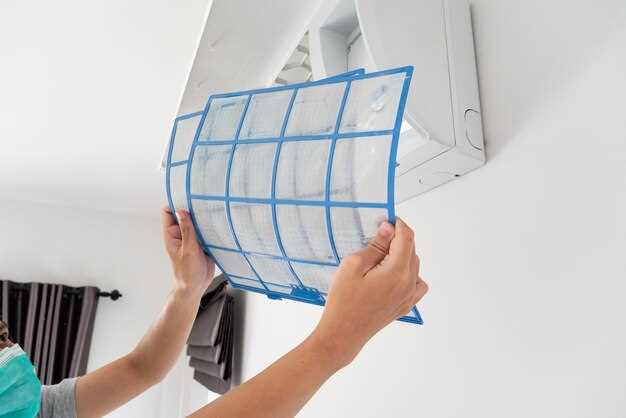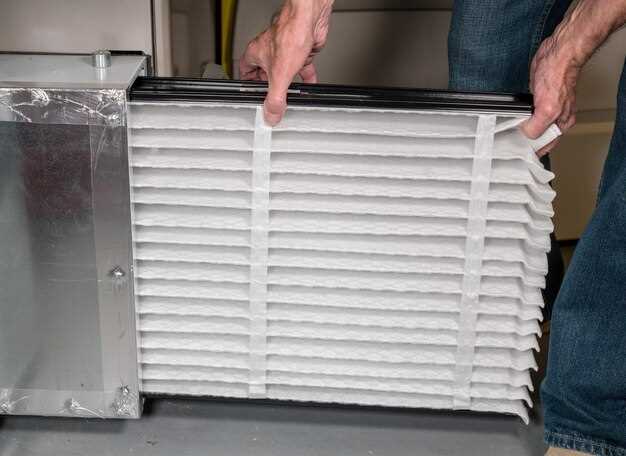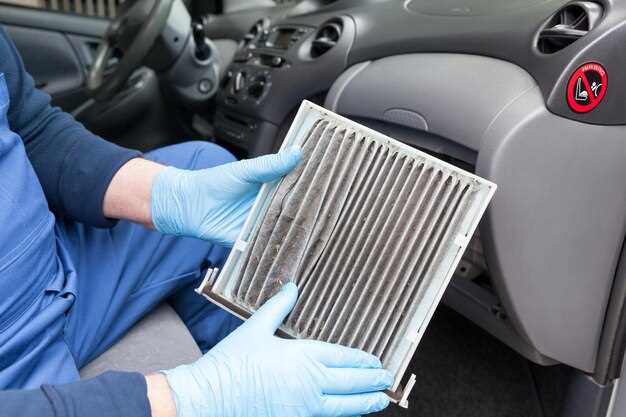
Indoor air quality is an essential aspect of a healthy living environment, and one of the key factors that influence this quality is the air filter. Regular replacement of air filters not only enhances their efficiency in trapping dust, allergens, and other pollutants but also plays a significant role in maintaining the overall health of occupants. As air circulates through your home, it passes through the filter, and if that filter is clogged or outdated, it cannot perform its job effectively.
The importance of changing air filters becomes even more apparent when considering the connection between air quality and respiratory health. Pollutants and irritants can accumulate over time, leading to poor air quality that exacerbates allergies, asthma, and other respiratory conditions. By ensuring that air filters are regularly replaced, you help mitigate these risks, allowing for cleaner air and a healthier living space.
Moreover, efficiency is vital not only for health but also for the performance of heating and cooling systems. Clogged filters force these systems to work harder, which can lead to increased energy consumption and higher utility bills. Regular maintenance through filter replacement thus not only improves air quality but can also result in long-term cost savings. Maintaining effective air filtration is a simple yet powerful step towards ensuring a healthier and more efficient home environment.
Why Regular Air Filter Replacement Matters
Regular air filter replacement is crucial for maintaining a healthy indoor environment. Air filters play an essential role in capturing dust, pollen, and other airborne contaminants, which can significantly affect air quality. When air filters become clogged, their efficiency diminishes, leading to a higher concentration of pollutants in the air you breathe.
In addition to improving health, replacing air filters regularly ensures that your heating, ventilation, and air conditioning (HVAC) system operates efficiently. An engine, much like an HVAC unit, relies on unobstructed airflow to function optimally. A blocked filter forces the system to work harder, increasing energy consumption and wear on the engine. This inefficiency can result in higher utility bills and costly repairs over time.
Moreover, maintaining clean air filters can extend the lifespan of your HVAC system. When filters are not replaced in a timely manner, the engine may overheat or experience mechanical failures due to increased workload. By prioritizing regular air filter changes, you not only enhance the efficiency of your system but also promote a healthier living space.
Impact of Air Filters on Indoor Air Quality and Health
Air filters play a crucial role in maintaining indoor air quality by trapping pollutants, allergens, and particulate matter. The efficiency of these filters directly affects the air we breathe. When filters are clean and functioning optimally, they effectively capture dust, pet dander, mold spores, and pollen, significantly reducing the concentration of these harmful particles in the air.
When air filters become clogged or are not replaced regularly, their ability to remove contaminants diminishes. This decline in efficiency can lead to increased levels of indoor air pollution, contributing to respiratory issues, allergies, and other health problems. Poor indoor air quality has been linked to chronic conditions such as asthma and may exacerbate existing health issues.
Additionally, dirty filters can cause HVAC systems to work harder, leading to increased energy consumption and higher utility bills. Regular replacement of air filters not only supports better air quality but also enhances the longevity of the heating and cooling systems.
In conclusion, maintaining the efficiency of air filters by replacing them on a scheduled basis is essential for promoting a healthier indoor environment. Prioritizing clean air through proper filter maintenance contributes directly to overall well-being and reduces the risk of health complications associated with poor air quality.
How Clean Air Filters Contribute to Engine Performance

Clean air filters play a crucial role in the overall performance of an engine. They serve as the first line of defense against dirt, debris, and contaminants that can enter the engine’s combustion chamber. When air filters are clean, they allow optimal airflow, which is essential for maintaining the proper air-fuel mixture needed for efficient combustion.
When the air filter is clogged or dirty, the engine struggles to draw in the necessary air. This restriction leads to a decrease in engine efficiency, causing it to work harder and consume more fuel. An inefficient engine not only experiences reduced power output but also emits higher levels of pollutants, negatively impacting both performance and environmental health.
Moreover, maintaining clean air filters helps enhance engine longevity. By preventing harmful particles from entering the engine, clean filters minimize wear and tear on internal components, reducing the likelihood of costly repairs and extending the overall life of the vehicle.
In summary, clean air filters significantly contribute to the efficiency of an engine by ensuring a steady supply of clean air, improving combustion performance, and extending engine life. Regular replacement of air filters is an essential maintenance task that pays dividends in terms of performance and overall vehicle health.
Signs It’s Time to Replace Your Air Filter

Regular air filter replacement is essential for maintaining a healthy indoor environment and enhancing the efficiency of your HVAC system. Here are key indicators that it’s time to replace your air filter:
- Visual Inspection: If the filter appears dirty, clogged, or discolored, it may no longer function effectively. A clean filter promotes better airflow, ensuring your engine operates properly.
- Inefficiency in System Performance: If you notice an increase in energy bills, your HVAC system might be working harder due to a clogged filter. This reduced efficiency can lead to unnecessary wear and tear on the engine.
- Allergy Symptoms: An increase in allergy symptoms among household members can signify that your air filter is not trapping dust, pollen, and other allergens effectively. Replacing the filter can help improve air quality.
- Unpleasant Odors: If musty or stale odors are present indoors, it could mean that the air filter is saturated with pollutants. A fresh filter can help eliminate these smells and maintain a healthier space.
- Increased Dust Accumulation: If you find that dust collects more rapidly on surfaces, this may indicate an inefficient filter that is failing to capture particles. Regular replacement can help reduce dust buildup.
Monitoring these signs can help ensure your air filter continues to perform effectively, ultimately benefiting both your health and the efficiency of your HVAC system’s engine.



